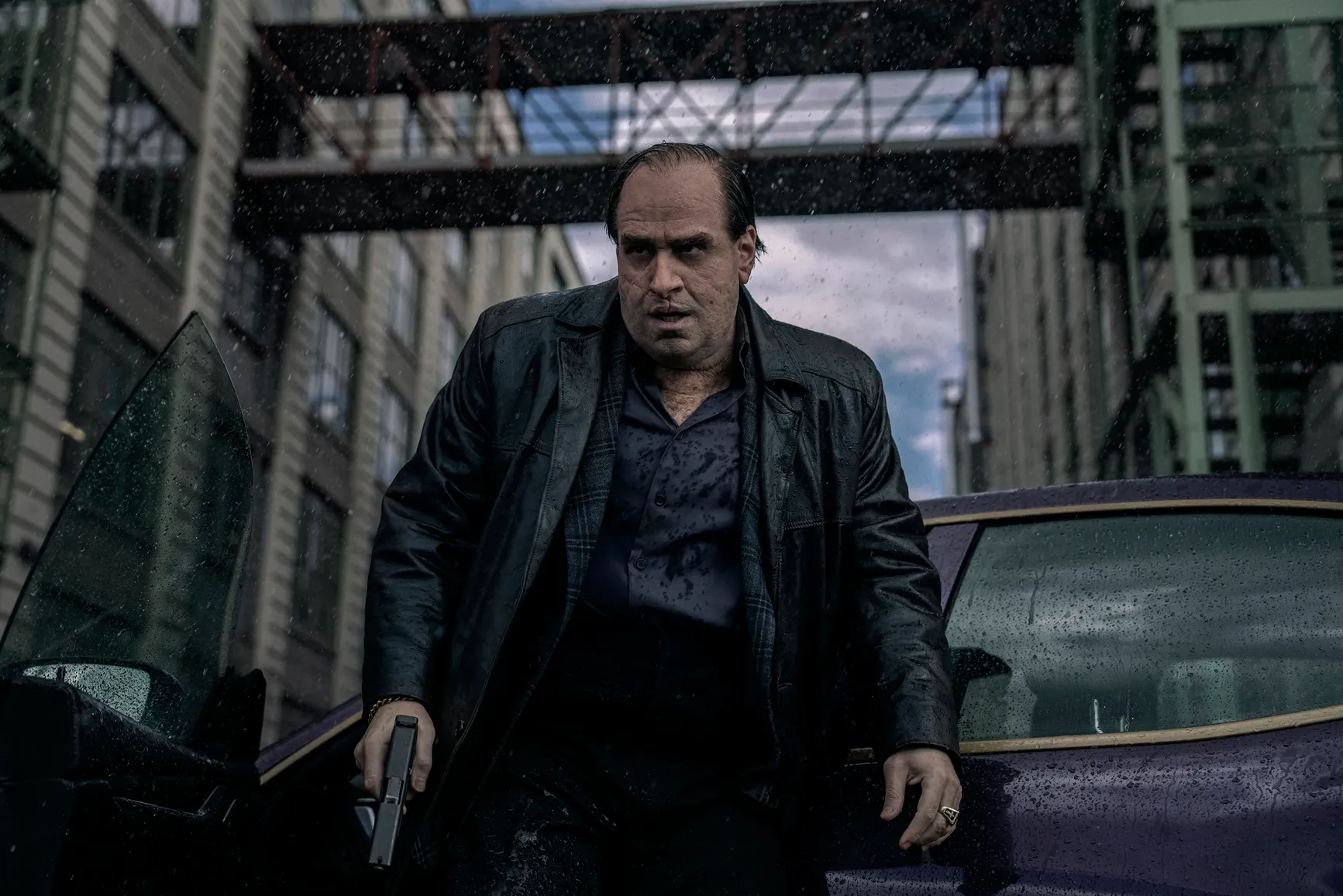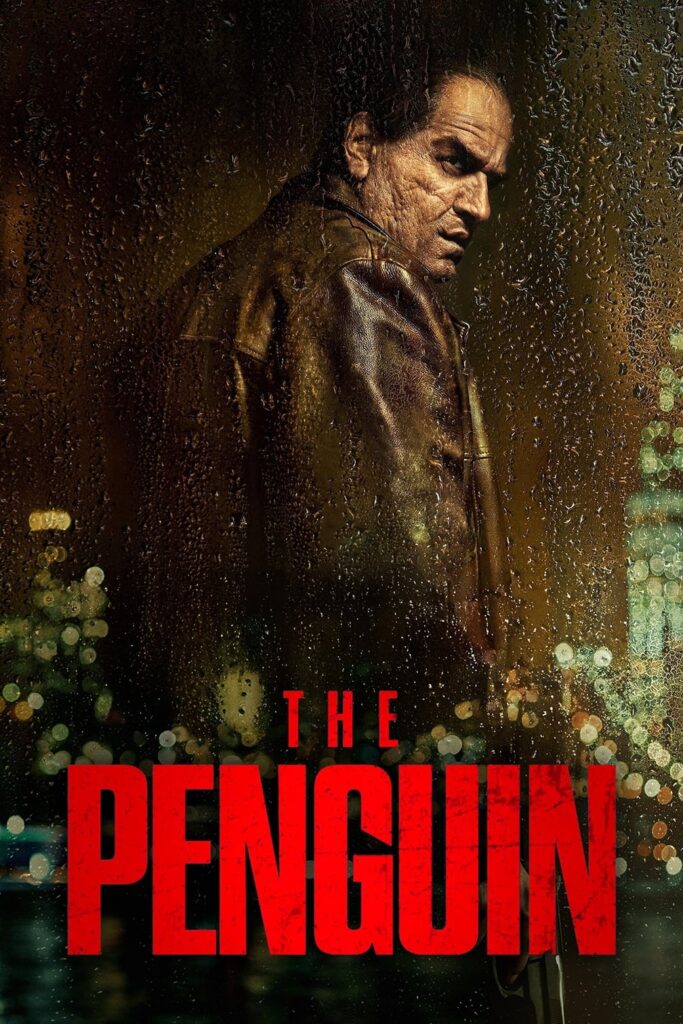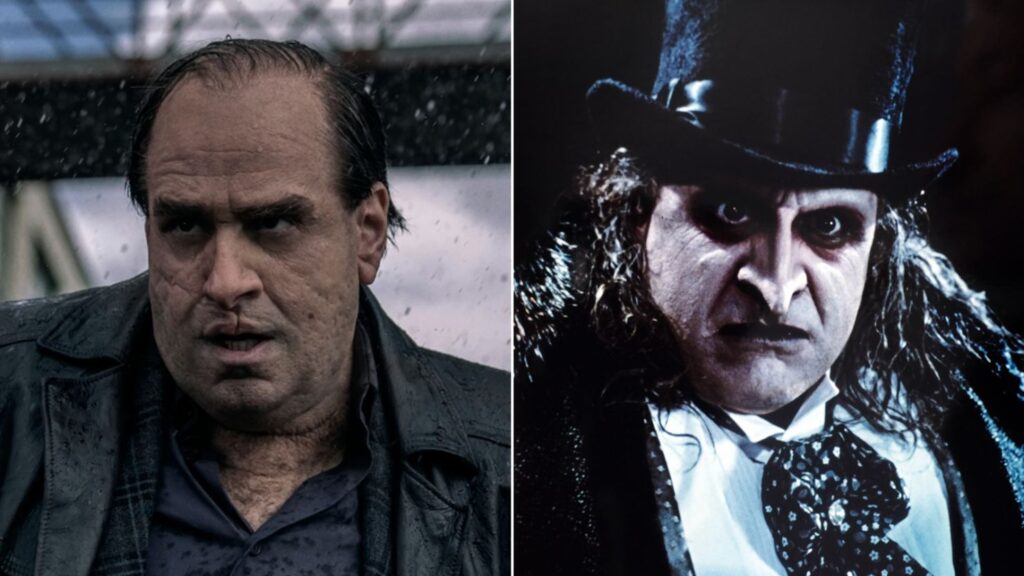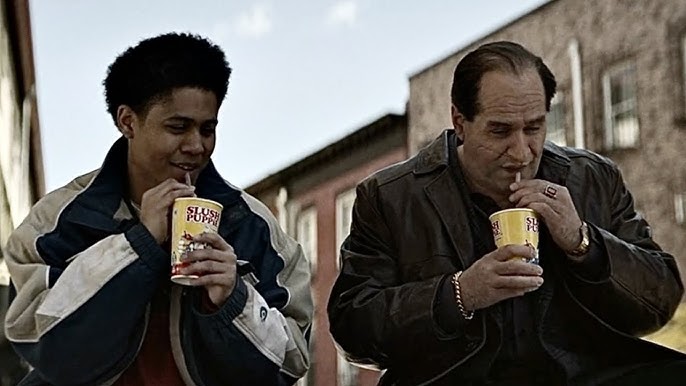Physical Address
304 North Cardinal St.
Dorchester Center, MA 02124

Spoiler Warning: This review includes significant spoilers for episode 1.

So, here’s the setup. I’ve just finished watching Time Cut on Netflix, and while scrolling through the top 10 list, I considered giving The Diplomat a shot. But then I realized I’d have to catch up on an entire season, and that’s just too much of a time commitment right now. Looking for something fresh to dive into, I headed over to HBO Max, hoping to find something new and intriguing.
Scrolling through the options, The Penguin immediately caught my eye. With a dark, gritty thumbnail showing the Penguin in slicked-back hair, a black coat, and an intense, Sopranos-style vibe, it felt like a deliberate nod to the classic anti-hero setup. I figured it might just be the next show worth diving into.
Now, full disclosure—I’m not exactly what you’d call a DC superfan. If anything, I lean toward the Marvel universe, and even within DC, I’m more of a Superman guy than a Batman fan. As for Batman’s rogues’ gallery, well, I tend to gravitate more toward the Joker than the Penguin. So, in all honesty, The Penguin had a bit of an uphill battle to pique my interest. Plus, like many people, I’m starting to feel a bit of superhero fatigue. But the image of Colin Farrell’s Penguin looking straight out of a mob drama, combined with that TV-MA rating, convinced me to give it a shot anyway.

Thinking back to my limited exposure to Batman over the years, it’s mostly the 90s animated series—which I watched more out of lack of options than genuine interest—and the classic Batman movies from the same era, with a vague memory of Danny DeVito’s Penguin and his grimy, fish-eating performance in Batman Returns. I never really dug deeply into the lore.
However, that gritty aesthetic in The Penguin’s thumbnail brought to mind shows like The Sopranos, which set me up with a particular kind of expectation. Could this be a dark, more nuanced take on Gotham’s underbelly? The setup already felt like it had potential, so I was ready to give it a fair shot.
Curious, I took a few moments to dig into the backstory of the show. Turns out, The Penguin is a spin-off of The Batman (2022), a film that’s honestly slipped my mind since its release. Matt Reeves, who directed The Batman, conceived this series to build out the grittier, more complex world of Gotham. And, instead of focusing on more straightforward crime-fighting, this series aims to show us the rise of Oswald Cobblepot—AKA the Penguin—within Gotham’s criminal landscape.
With Craig Zobel at the helm as the director for the first few episodes, known for his work on Mare of Easttown (a show I thought was incredible), my interest spiked. With Zobel’s eye for gritty, character-driven storytelling, I figured there might be something special here. Now with all that set, I’m ready to jump in and see what Episode 1 has in store.
The episode begins with an ominous news segment detailing explosions across Gotham City, reportedly the work of the Riddler. The camera opens with a stylized shot of a man standing in front of a window, his silhouette starkly outlined against Gotham’s gritty skyline. Right from the start, there’s an intense, noir-style aesthetic, and the silhouetted figure—clearly recognizable as the Penguin—stands in a trench coat, casting a long, ominous shadow. I immediately found myself appreciating the tone; it’s mysterious and has a weight to it that promises a more grounded, darkly realistic portrayal of Gotham’s chaos.
As the news continues, detailing Gotham’s spiraling crime wave, I can’t help but feel an odd parallel to some of the major American cities today. Gotham’s situation, with rampant crime and a sense of disorder, mirrors real-life cities like Los Angeles, San Francisco, Philadelphia, Chicago, and New York. Personally, I stay far away from big cities, especially as I get older. There’s something unsettling in how Gotham feels familiar, even with its exaggerated chaos.
The camera slowly pans around the Penguin, who watches the broadcast intently. There’s a close-up shot of his eyes, conveying a look of concern—or perhaps calculation. The attention to detail in these shots is impressive; every subtle movement of his facial expression hints at something deeper brewing under the surface.
The scene transitions to nighttime, where we find the Penguin pulling a sleek sledgehammer from a dimly lit parking lot. There’s a steady rain, and he walks with that signature limp, the familiar “Penguin walk” adding a gritty realism to the character. Colin Farrell’s performance shines here—his body language, facial expressions, and overall aura give a sense of Penguin as a man both crippled and yet unnervingly confident. It’s an immediately compelling portrayal, adding layers to a character I wouldn’t typically gravitate toward.
The camera follows him into a vaulted, cavernous room with unusual circular windows and pillars that lend it an almost gothic, eerie vibe. This entire sequence is phenomenal—the cinematography, the lighting, the sound design, the background music. It’s raining outside, with faint thunder rolling in, and the shadows cast by the low, yellowish lights create a noir-like atmosphere.
I liked this scene so much that I had to rewind to watch it again. Penguin walks below what looks like a viaduct or underpass, with rubble and discarded items strewn across the floor, all captured in a wide-angle shot from above. The attention to detail is incredible and sets up Gotham as a place of decay and darkness.
As Penguin approaches the Iceberg Lounge, there’s a shot from in front of him, showcasing the grimy exterior as he makes his way up the stairs. The music shifts subtly, adding a mix of mysterious stringed tones that complement the constant sound of rain, setting an almost hypnotic, melancholic tone. Penguin enters the lounge, and the sound effects—especially the heavy, metallic creak of the door—add a real sense of place. Inside, rain is pouring through the ceiling in various spots, creating a visually arresting scene.
The lounge feels like a place you’d want to step into just to experience the atmosphere. Despite its decrepit state, there’s an elegance to the place, with dark wood finishes, fancy liquor bottles, and Gothic chandeliers. Through the circular windows, you can see the flashing lights of police cars, either indicating nearby activity or serving as a constant reminder of Gotham’s chaos.
Penguin proceeds to break down a section of the wall, revealing hidden files and jewelry, though it’s unclear to me who these items belonged to. The scene is suddenly interrupted by the arrival of a man named Alberto, who confronts Penguin with a gun. It’s here we get our first taste of Colin Farrell’s take on Penguin’s voice, accent, and mannerisms, and it’s impressive. Farrell embodies the character fully, delivering his lines with a gruff, almost sneering cadence that makes him both menacing and oddly charismatic.
Penguin, now in control of the lounge, starts talking to Alberto, and they share a drink. Alberto mentions his father and how he used to steal from him, but in a calculated way, only taking a little at a time. Penguin responds with a story about a gangster from his youth, though Alberto misinterprets it, taking offense and becoming suspicious of Penguin’s motives. The tension builds as Alberto begins mocking him, pushing the wrong buttons.
Then, in a split-second move, Penguin calmly draws his gun and shoots Alberto. There’s no anger, no hesitation—just a cold, calculated kill followed by a subtle chuckle. Farrell’s performance here is exceptional. After pulling the trigger, there’s a brief moment where Penguin’s expression shifts, and he seems almost satisfied.
The camera cuts to a close-up of his face as the smile fades, replaced by a tense, almost pensive look as the gravity of his actions sinks in. You can see him processing what he’s just done, realizing the potential fallout of killing a mob boss’s son. His expression becomes strained, his gaze dropping to the floor as if searching for a way out of the mess he’s created. Then, with a grim squint and a muttered “Fu…,” he acknowledges the dire situation he’s in.
This scene is brilliant. Farrell captures the sinister yet layered nature of Penguin’s character, adding depth to what could easily have been a one-dimensional villain. The entire sequence is an engaging setup for what’s to come, showcasing Gotham as a decaying, dangerous city and Penguin as a ruthless, complex player within it. This was a fantastic way to kick off the series, and I’m hooked.
After dispatching Alberto, the next scene shows Penguin methodically placing his victim’s body into a bag and hauling it outside. Just as he’s loading the body, he notices a group of hoodlums stealing the hubcaps from his car. Instinctively, he draws his gun and fires off a few shots to scare them off, managing to grab hold of one of them—a young man named Victor Aguilar, who seems to have a noticeable stutter.
Right away, Penguin’s approach is different. Instead of intimidation, he chooses to take Victor under his wing, showing a side that feels almost fatherly. Despite Penguin’s cutthroat nature, there’s an unexpected charm in the way he treats Victor, even if it’s purely for his own gain.
Victor’s character intrigued me, so I looked him up, expecting to find some connection to the broader Batman lore, only to discover that he’s an original character created just for this series. It’s refreshing to see how Penguin seems to find a kinship with Victor. Perhaps it’s the shared sense of being an outsider, or maybe Penguin sees some of his younger self in Victor. Watching this, there’s a strangely likable quality to Penguin; he seems like he’d be a cool, if slightly dangerous, uncle figure.
In their first ride together, Penguin and Victor have a brief but telling conversation, with Penguin sharing bits about his own tough upbringing in the same neighborhood. It’s surprisingly touching, showing Penguin in a different light, more like a mentor than a hardened mob boss. This partnership creates a sort of buddy-comedy vibe that stands out against the gritty noir setting. Penguin has a sarcastic, almost playful edge with Victor, adding humor and depth to the relationship.
The pair heads to a woman’s apartment, where Penguin sets up an alibi by arranging a late-night visit. Afterward, they eat hamburgers in a junkyard under the slowly rising dawn, a quiet moment that balances the chaos of the previous scenes. With dawn breaking, Penguin gets Victor to help him hide Alberto’s body in a car trunk. As they pause to look at the sunrise, Victor grows visibly anxious, expecting the worst. Instead, Penguin offers him a cigar, telling him they’re in this together.
There’s an interesting duality here—Penguin can be ruthless, but he’s also a shrewd manipulator who knows when to give people a sliver of hope. Their bond, though unconventional, adds warmth to the otherwise cold landscape of Gotham’s underworld.
The next few scenes delve into Penguin’s daily life, beginning with him waking up in his modest apartment in a slightly better area of the city. There’s a brief, gritty shot of his feet—a reminder that, despite his ambition, Penguin has a physical vulnerability.
From his window, we see Gotham’s fractured skyline, with the lingering damage of Riddler’s recent explosions, prompting Penguin to mutter about the “madman” responsible. This line struck me as significant; even though Penguin is a criminal, he views himself as different from Gotham’s truly unhinged villains. He may be ruthless, but he’s no chaotic anarchist like the Riddler.
Penguin’s next stop is a grim warehouse where a drug operation is in full swing. He’s summoned by Gotham’s crime family leaders and is soon on his way to a mansion outside the city. Upon arrival, Penguin shares a darkly humorous moment with Victor, joking about whether he’ll make it out alive. Colin Farrell delivers this line with such effortless charisma that I couldn’t help but laugh.
It’s astounding how Farrell has transformed into this character. Growing up in Ireland, Farrell’s Brooklyn accent is spot-on, his humor sharp and oddly endearing. I have to admit, I wasn’t a fan of his heartthrob phase in the early 2000s, but his portrayal of the Penguin is next-level.
Inside, the family bosses inform Penguin that they’re shutting down his operation, consolidating the drug trade. Penguin, however, tries to negotiate, bringing up the shipment he learned about from Alberto. He’s introduced to Sofia Falcone, Carmine Falcone’s daughter, who immediately comes across as a powerful figure.
Unsure if Sofia had roots in the Batman universe, I paused to look her up. Sofia’s character, played by Cristin Milioti, hails from Batman: The Long Halloween, where she’s depicted as a ruthless presence within the Falcone crime family. This adaptation adds new layers to her character, positioning her as a dangerous rival to Penguin.
Sofia presses Penguin about Alberto’s whereabouts, and while Penguin tries to brush it off, she drops hints that she knows the truth. Their exchange is intense, adding tension to what’s already a precarious alliance. Penguin and Sofia dine at a small restaurant where she eats ravenously, ordering drinks and sizing him up with each bite.
The dynamic is intriguing; Sofia is clearly someone to watch out for, and her ruthless streak is evident. At one point, she even whispers to Penguin that she’s aware he killed Alberto, adding a chilling undertone to their already uneasy relationship.
The show continues to reveal layers of Penguin’s backstory, particularly in a scene where he takes Sofia to his mother’s house. Penguin’s mother suffers from what seems like dementia, giving us a glimpse into his troubled past. Sofia mocks him, calling him a “pussy boy,” in a way that hints at the psychological abuse he likely endured growing up. This moment humanizes Penguin, showing how his hard exterior was forged by years of hardship and ridicule.
In a daytime scene, Penguin talks to Victor about how the world does nothing for men like them, asking if he can count on Victor’s loyalty. It’s a compelling moment that cements their bond, with Penguin as the unlikely mentor Victor never had. They share a resilience born from society’s disregard, making their partnership feel genuine and almost admirable in its defiance.
In a bold move, Penguin visits Sal, a rival crime boss in prison, presenting him with Alberto’s ring—a calculated gift to stir trouble for the Falcones. When he returns home, Sofia’s men are waiting, leading to a tense chase and his eventual capture.
The episode climaxes with a brilliant twist: a red car crashes onto the lawn, and in the trunk, Sofia finds Alberto’s body with a message—“payback”—and his ring finger missing. This twist had me genuinely impressed with the show’s writing. Penguin’s strategy of pinning the murder on Sal is brilliant, and it’s a perfect display of his cunning nature.

As the episode closes, Penguin meets Victor on the street, and they reaffirm their loyalty to each other, vowing to take control of Gotham. The final moments show Penguin nostalgically mixing slushie flavors, recalling a lighthearted memory from earlier, symbolizing the blend of chaos and control that defines his path forward. The tone is triumphant, albeit grim—a perfect ending to an episode that thoroughly hooked me.
Colin Farrell’s performance throughout the episode is exceptional. Despite my initial disinterest in superhero content, Farrell’s portrayal of Penguin has me hooked. The Batman universe doesn’t hold a particular allure for me, but this gritty, grounded take on Gotham and the mobster-like dynamics between Penguin and Victor elevate the show.
I love the buddy-comedy twist that adds a unique flavor to the mob drama setting. If the rest of the season keeps up this quality, The Penguin is definitely worth watching. Farrell’s commitment to the character, his accent, and his chemistry with Victor make it a standout. I can’t wait to see where this series goes next.
Click here for my latest posts!